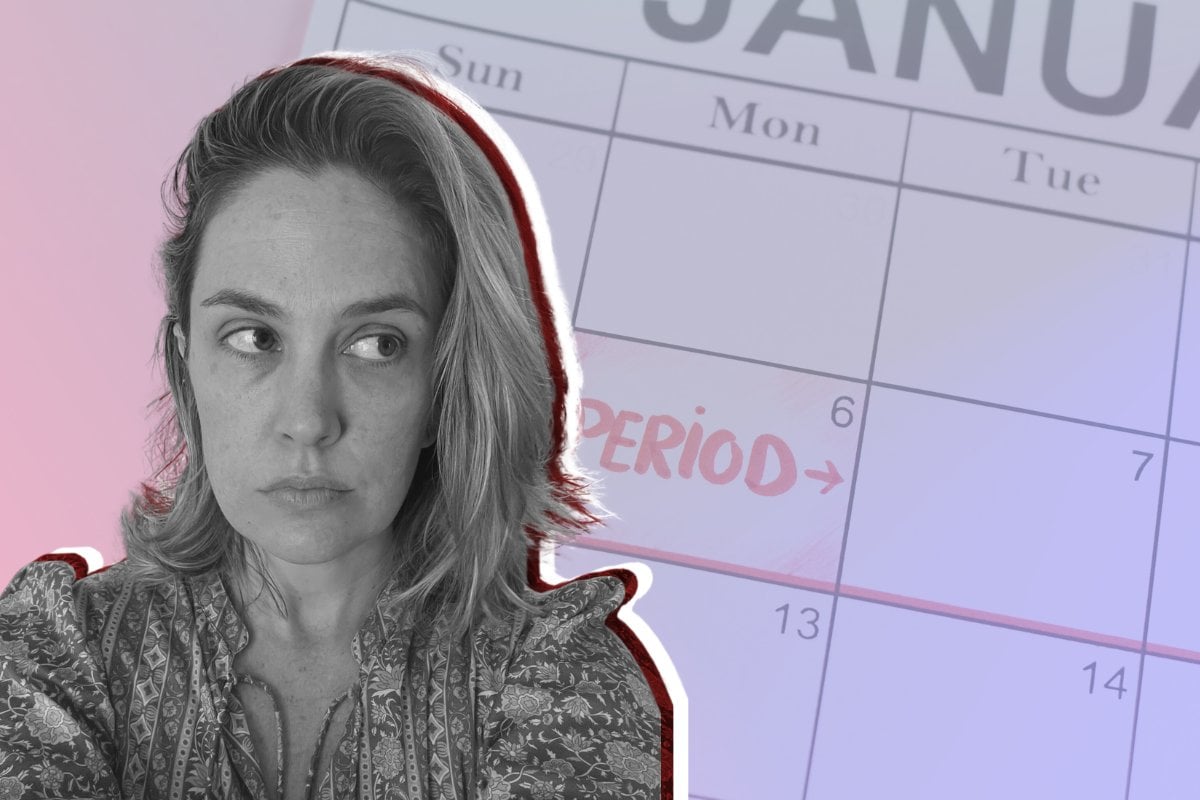
Content warning: This post includes discussion of suicidal ideation that may be distressing to some readers.
As I sat on the train on my way into the Mamamia office, silent tears rolled down my face. I stared bleakly out the window, the crisp blue sky taunting me as I sniffled into a tissue, hiding behind my sunnies and hoping everyone just thought I was having an allergic moment, rather than a complete breakdown on public transport.
As I dabbed at my face with my snotty Kleenex, I opened up my period tracker on my phone.
“Three days until your next period!” the screen told me cheerfully.
I let out a sigh of relief.
I didn’t actually feel any better, but at least I knew I wasn’t going crazy.
Because this wasn’t ‘me’; not really. This was hormonal.
This was PMDD.
Listen to Fill My Cup with Allira Potter: Feeling Anxious? Here's How To Reset Your Mind. Post continues below.
Premenstrual dysphoric disorder (PMDD) is a condition that affects around five percent of women, if not more, says holistic health expert Nat Kringoudis, who runs her own women’s health practice, The Pagoda Tree, in Melbourne.
And, spoiler alert: feeling this way isn’t normal.
“Women will say, ‘I just thought I was going crazy or I just thought it was part of just how I’m going to feel as I get older,” Kringoudis explained when we sat down to speak about the rude cousin of PMS – which goes largely undiagnosed.


Top Comments